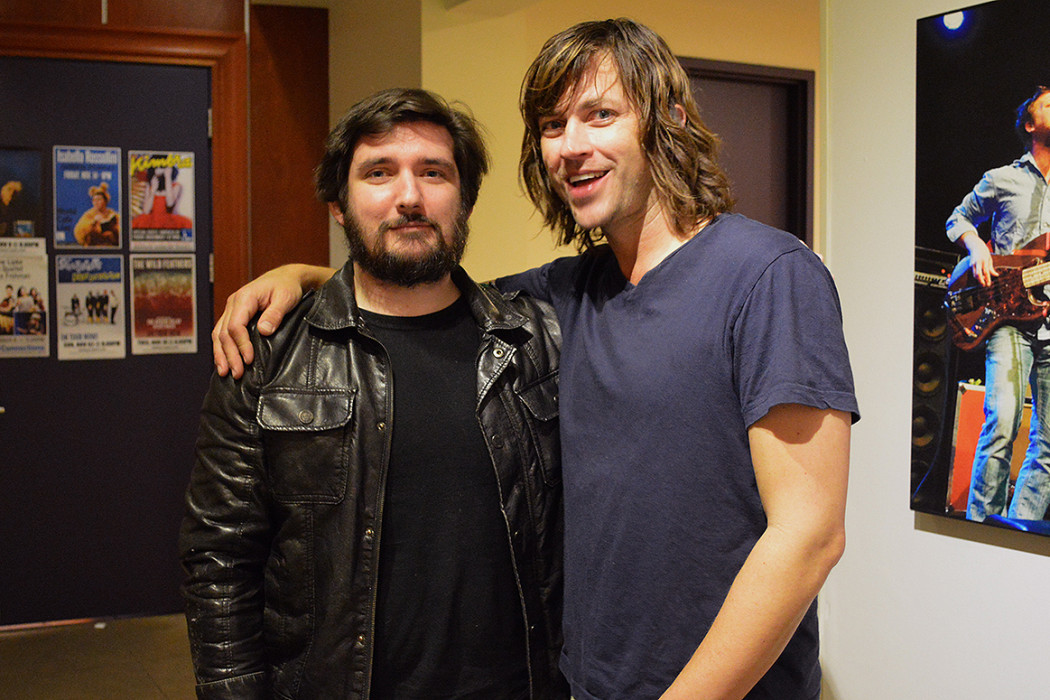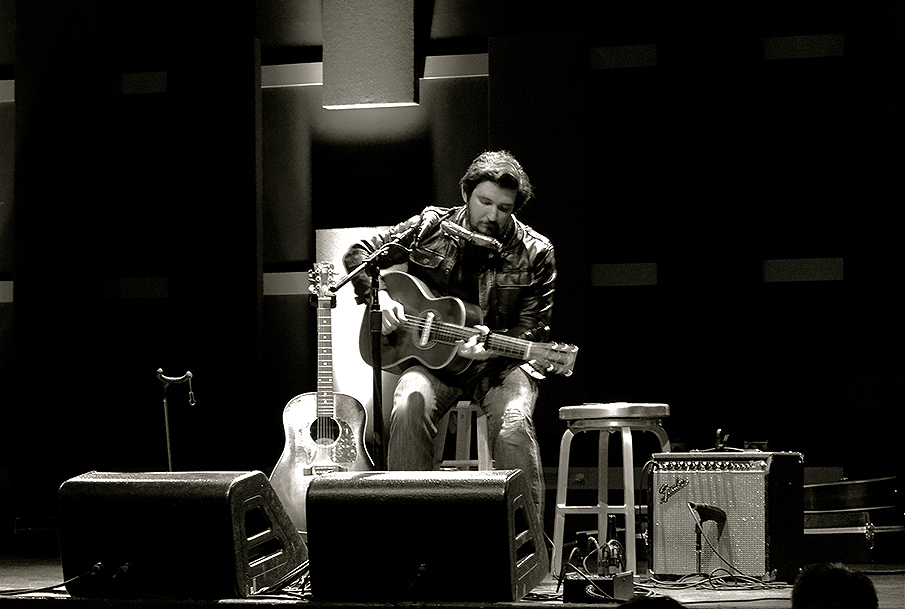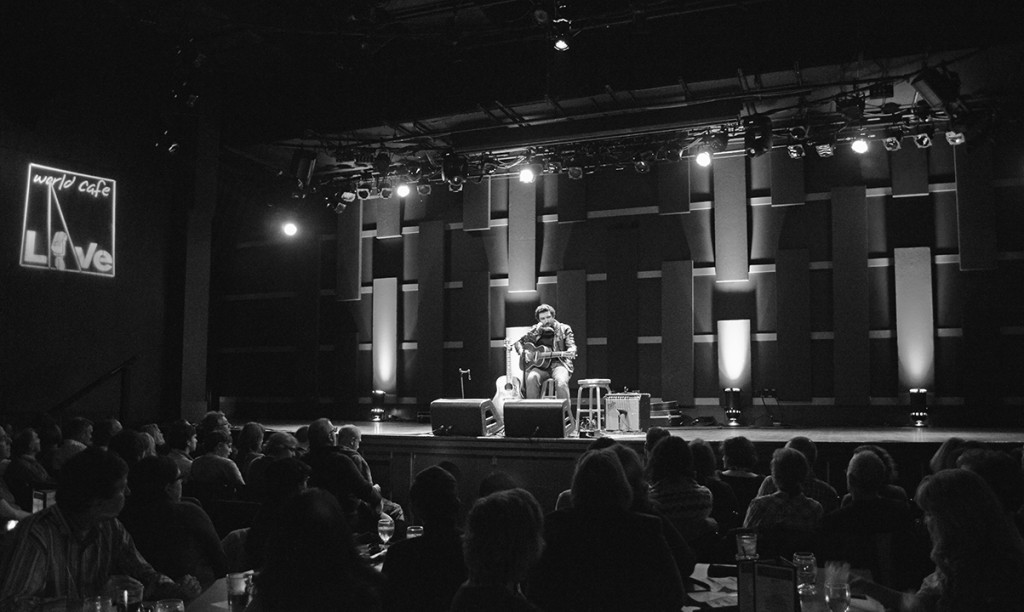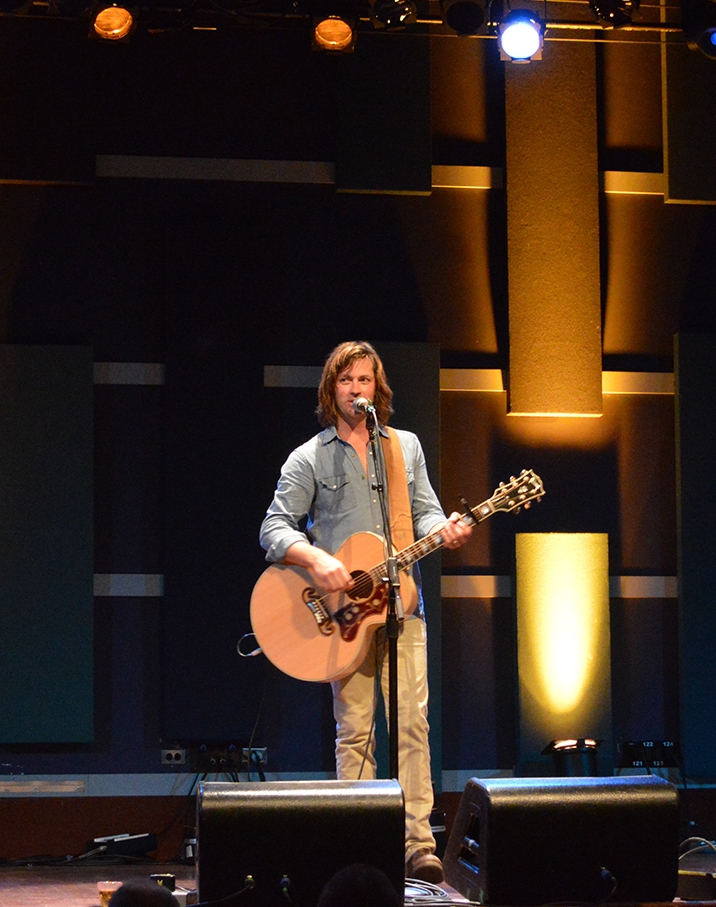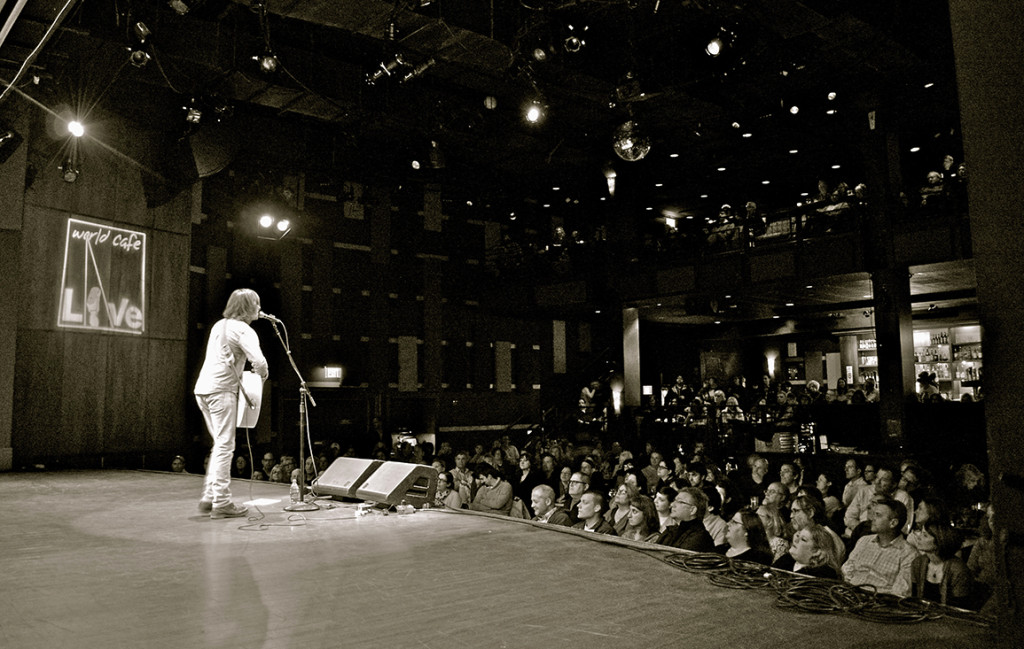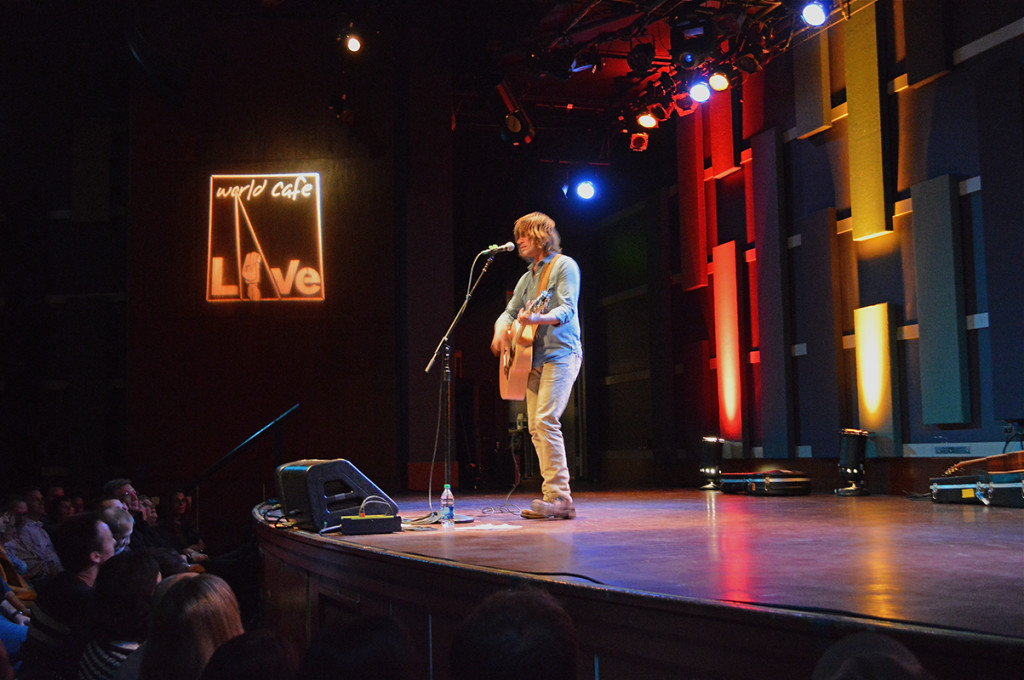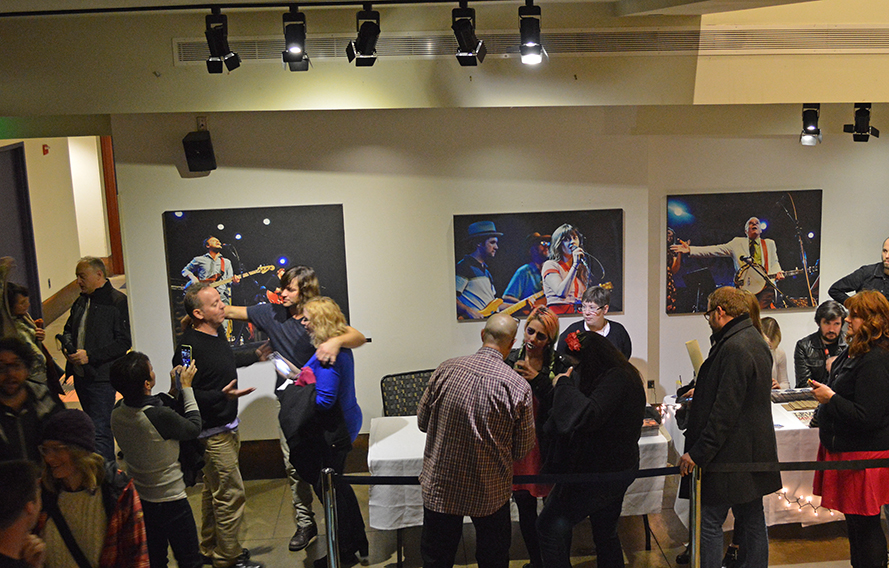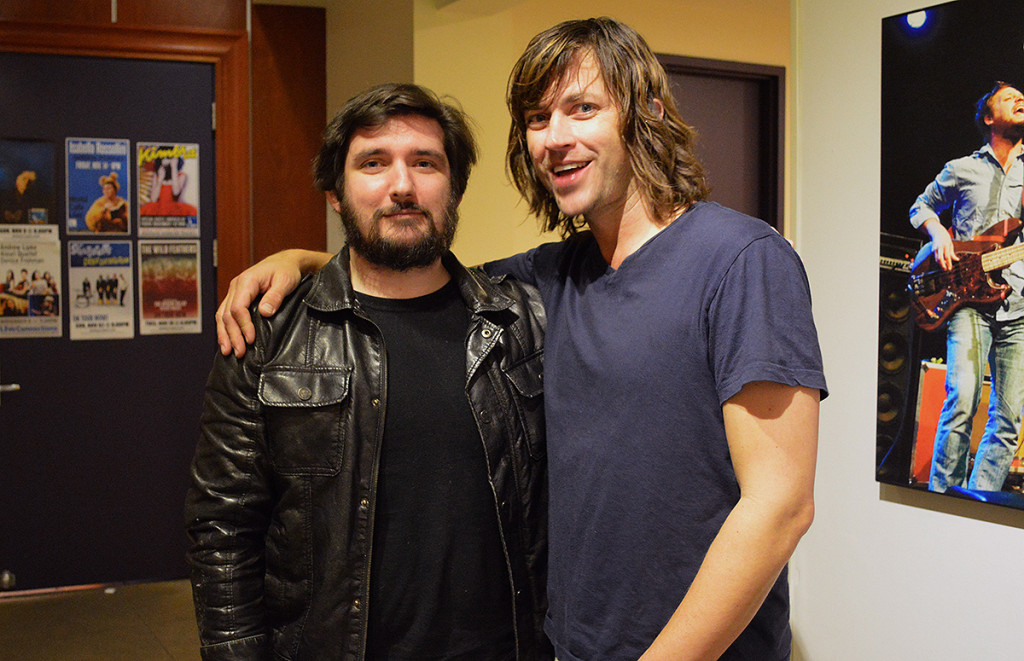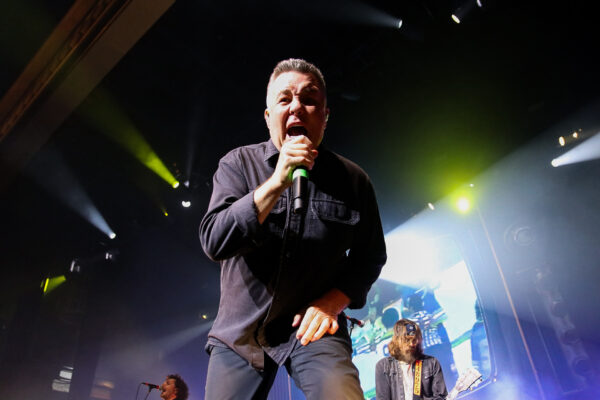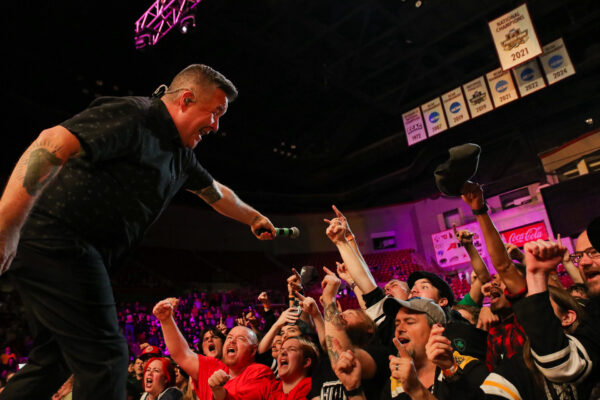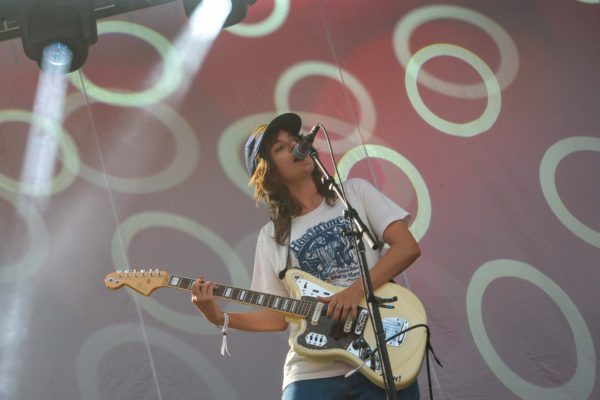With the house lights dimmed, Levee Drivers frontman August John Lutz II made his way onto the stage at Philadelphia’s World Café Live. Opening for Rhett Miller of the Old 97s, Lutz took a seat before quietly replacing the beer in his hand with the neck of an acoustic guitar. As the lights came up, he greeted the crowd with the opening notes of “Bourbon Coated.” Lutz’s voice filled the three-tiered music hall with such stunning force that it was almost disorienting to look up and be reminded that he was the only one onstage. Remaining seated throughout the duration of his forty-minute set, Lutz could often be seen moving in his seat, shifting to the rhythms as his body mirrored moments of solemn balladry and lawless rock and roll.
Whenever he performs, Lutz captures a mood and tenacity that steadily builds, pulling you back to a time when rock was a pure and undiluted form of expression. Long before Elvis Presley’s torso was pictured on every beach towel in America, rock and roll possessed a danger and tension that could do damage. Lutz’s performance of “Off Them Tracks,” embodied that same outlaw spirit, daring you to travel in a direction of dark roads lit by uncertainty and consequence. When he howls, “Tell me now where you been last night, I want to know,” he pushes his voice to it’s limits, conveying the shades of gray that seep into our emotions, threatening our perception and ability to reason. In an age of insincere songwriters and manufactured brooding, Lutz and the group he founded, the Levee Drivers, produce heartfelt, thoughtful work that excels in its capacity to move and inspire.
“One more, two more?”
“Two More!”
“Oh! It’s the crowd’s decision.”
Finishing his set with “Stars and Highway Blues” and a cover of Presley’s Sun Records debut, “That’s Alright Mama,” Lutz created an expansive musical climate, accented by looming menace and winsome charm…without ever leaving his chair.
Walking onstage dressed in a pale blue denim shirt and khaki colored jeans, Rhett Miller’s vibrant demeanor was at times the only thing keeping him from being washed out against the room’s burning aerial lights. Throughout his set, the Old 97s frontman performed with a joy and enthusiasm that was contagious, prompting the sold out audience to treat the evening more like a bonfire sing-a-long with the neighbors, than a serious minded acoustic set from a member of one of modern music’s most popular and influential bands. And though that bands first studio album, Hitchhike To Rome was released on November 1st, 1994, Rhett Miller’s appearance in Philadelphia exactly twenty years later saw him unknowingly spotlight the same spark that continues to define his songwriting.
“Tip your bartenders- they’re doing God’s work.”
Armed with an acoustic guitar and a single microphone, Rhett Miller’s promise of a stripped down performance had suggested a quiet, intimate evening with the singer-songwriter. And while it was just that, Miller’s version of “An Intimate Evening with…” is free of the pretention and ego that can often trap other artist’s in the same format. Taking the elements of the formula and reshaping them to suit his own style and taste, Miller delivered a brisk, animated performance that never took itself too seriously. Instead, he played a barrage of older and newer songs, underlining his ability to drift seamlessly from the alt-country flash of “Indefinitely,” and “Four Leaf Clover,” to the hushed climates of his most recent solo work. And by completely eliminating the stuffiness that can threaten a purely acoustic show, Miller treated concertgoers to buoyant, lively performances that managed to be engaging, visceral and fun without ever compromising the original intentions of his compositions.
“Got word back that ‘Bob Dylan really likes your song,’ – so I considered retirement.”
In the middle of his performance of the Old 97s song “Champaign, Illinois,” Miller stopped singing and started talking. And while he would do this frequently throughout the evening, all of his stories and antidotes were accompanied by the sharp strum of his Gibson acoustic. Erasing the distance between himself and the audience, Miller spoke to the crowd with a candor and warmth that floored the night’s attendees. Describing how he put new words to Bob Dylan’s “Desolation Row,” as a game to keep himself awake while driving on tour, he joked that the original is “a great song, but it’s a little obtuse.” Though the most rousing moment of his set came during the performance of “Big Brown Eyes.” When he sang, “You don’t give me no respect, what do you expect?” a section of the crowd yelled it with him, deliberately placing emphasis on the bitterness of the song’s sentiment. All of which prompted Miller to narrow his eyes in their direction, undoubtedly trying to make out their figures despite the glare from the stage. And though the venue’s lights were fixed in the same state for most of the night, the crowd’s reaction had even prompted the lighting crew to hit the crowd as Miller reached the song’s centerpiece:
“I’ve got issues, yeah!
“Like I miss you, yeah!”
As the end of the night drew near, one of the evening’s final performances proved to be one of the most memorable. After spying Roseanne Cash’s photograph hanging in one of the hallways of the venue, Miller had decided to “channel” Cash by performing a song they had previously collaborated on. Featured on his 2012 solo album The Dreamer, “As Close As I Came to Right,” is a song that he considers sacred, likening it to “an outfit you don’t often wear because you don’t want to get it dirty.” And by treating the World Café audience to a night punctuated by exuberance and humor, Miller playfully approached the end of a career spanning set, highlighting a light-hearted introspection that can cut as deep as a hatchet.
Article by: Caitlin Phillips

